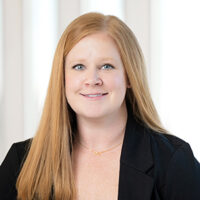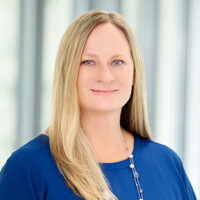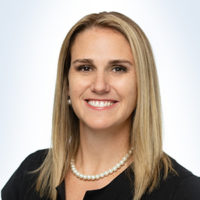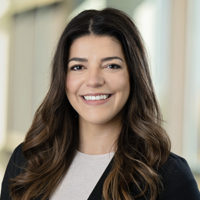Concussion treatment for adults who have suffered from a fall or other type of blow to the head is essential to restoring cognitive deficits and helping address changes in sleep, appetite and mood. Our Denver-area Concussion Clinics provide thorough assessments and customized adult concussion treatment plans.
Neurosurgery One’s Concussion Clinics are staffed by Certified Nurse Practitioners with extensive experience in traumatic brain injuries and overseen by our Denver neurosurgeons.
Our Concussion Clinics in Littleton and Lakewood, Colorado, help adults with mild brain injuries get back to normal more quickly. We can see most patients within three days at our easy-to-access Denver locations. Schedule an appointment online or call 720-638-7500, Option 1.
Concussions in adults are treated similarly to concussions in children and teenagers. Adults who experience any type of trauma to the head should be evaluated for a concussion to avoid any long-term side effects.
Concussions are mild traumatic brain injuries (TBI). They’re often thought of only in relation to kids or teenagers, but adults of all ages experience concussions. In fact, people ages 75 and older account for the highest number of TBI-related emergency department visits, hospitalizations and deaths of any age group.
Even a mild traumatic brain injury, or concussion, can lead to ongoing difficulties with thinking, dizziness, vision, headaches, sleep cycles, and appetite. And having a second concussion before healing from the first is incredibly dangerous, and can result in brain swelling, permanent brain damage and even death. That’s why it’s especially important to seek treatment if your symptoms aren’t going away.
Neurosurgery One’s Concussion Clinics in Littleton and Lakewood offer comprehensive care from assessment to treatment in one location. We oversee and coordinate all of your care to ensure you have the best chance of a full recovery. Continue reading below to learn more about adult concussion treatment in Denver.
FAQs About Adult Concussion Treatment in Denver
Continue reading below to learn more about adult concussion treatment or click on one of these links to go directly to the information you need.
- What causes concussions in adults?
- What are the symptoms of a concussion in an adult?
- Can concussion symptoms in adults be delayed?
- How is a concussion in an adult diagnosed?
- What services are offered in Neurosurgery One Concussion Clinics?
- How do I get treated for an adult concussion in Denver?
- How are adult concussions treated?
- How long does it take to recover from a concussion?
Conditions We Treat
What causes concussions in adults?
Concussions are caused by any type of trauma to the head, such as:
- A fall that led to hitting the head
- Motor vehicle collision that caused a head injury or whiplash
- Sports-related injury that resulted in a blow to the head
- Assault involving a strike to the head
- Other head trauma
When trauma occurs, the brain gets jostled around inside the skull. If it gets pushed up against the side of the skull, the brain can bruise, resulting in a concussion.
What are the symptoms of a concussion in an adult?
Concussions are mild traumatic brain injuries (TBI). They’re often thought of only in relation to kids or teenagers, but adults of all ages experience concussions. In fact, people ages 75 and older account for the highest number of TBI-related emergency department visits, hospitalizations, and deaths of any age group.
Concussion symptoms in adults are the same as in children and adolescents and vary widely by individual.
Here are six signs of a concussion. If you are experiencing any of these signs, you need to seek medical attention for your head injury.
- Symptoms, such as difficulty concentrating or complex thinking, are negatively affecting your performance at school or work and/or interfering with personal relationships.
- Someone has mentioned a change in your personality.
- You get angry or irritable for no reason.
- You get lost or are easily confused.
- You have more difficulty than usual making decisions.
- Your sleep and/or appetite have changed.
Can concussion symptoms in adults be delayed?
Contrary to popular thought, concussions don’t always result in a person passing out or immediately feeling symptoms. In some cases, concussion symptoms might not develop for weeks or months following a head injury.
Even a mild traumatic brain injury, or concussion, can lead to ongoing difficulties with thinking, dizziness, vision, headaches, sleep cycles, and appetite. And having a second concussion before healing from the first is incredibly dangerous, and can result in brain swelling, permanent brain damage and even death. That’s why it’s especially important to seek treatment if your symptoms aren’t going away.
How is a concussion in an adult diagnosed?
There are four standard concussion screening tools that we use at Neurosurgery One to assess whether you have suffered a concussion. In addition to these tests, we might also obtain advanced imaging, such as an MRI scan, if clinically indicated.
The screening tools we may use to assess your symptoms include:
- Standard Assessment of Concussion
- Post- Concussion Symptom Scale and Graded Symptoms Checklist
- Sport Concussion Assessment Tool
- Westmead Post-Traumatic Amnesia Scale
Neurosurgery One’s Concussion Clinic can assess your concussion symptoms and recommend treatment options.
What services are offered in Neurosurgery One Concussion Clinics?
The effects of a head injury don’t always go away with time and can even continue to get worse. If you are having any symptoms from an earlier head trauma—even one that happened months ago—you should be evaluated and treated to regain function and regain your life.
Neurosurgery One’s Concussion Clinics in Littleton and Lakewood, Colorado, are overseen by expert Denver neurosurgeons and provide comprehensive care from assessment to treatment in one location and coordinate all of your care to ensure you have the best chance of a full recovery.
In the Neurosurgery One Concussion Clinic, we:
-
- Assess concussion side effects
- Obtain imaging to help confirm the degree to which the brain has been injured at the time of concussion
- Work with you to create a personalized treatment plan
- Prescribe physical therapy, occupational therapy, and speech therapy, as appropriate, to help you achieve your goals
- Connect you with neuropsychology providers who can help with memory changes, mood disturbances, and learning difficulties
How do I get treated for an adult concussion in Denver?
To be treated at a Neurosurgery One, Concussion Clinic in the Denver area, you can call us directly if you’d like to be assessed for concussion symptoms or just have questions about whether you even need to be seen. You also can be referred by your primary care, urgent care, or other healthcare provider.
Call 720-638-7500, Option 1, to speak to a Concussion Clinic Certified Nurse Practitioner or request an appointment online.
Patients who go to a Denver-area emergency room for immediate concussion treatment can follow up with rehabilitative care through Neurosurgery One to treat ongoing concussion symptoms. Our Lakewood Concussion Clinic is located next to St. Anthony Hospital, a Level I Trauma Center. Our Littleton Concussion Clinic is located on the campus of Littleton Adventist Hospital, a Level II Trauma Center.
How are adult concussions treated?
With every new patient, our experts at a Neurosurgery One Concussion Clinic take the time and care to understand the trauma you have experienced. We assess your range of concussion symptoms, which may include headache, nausea, vomiting, balance issues, hearing and vision impairment, behavior changes, and memory and loss in cognitive skills, such as ability to think clearly, process information quickly or concentrate.
Based on your concussion symptoms, we then create a customized treatment plan with therapies to treat your particular concussion symptoms. This may include medications, visual therapy, and cognitive or speech therapy. We also will help you understand important self-care measures you will need to take at home, such as taking breaks in mental processing and modifying your environment to limit mental stimulation.
How long does it take to recover from a concussion?
Every patient who experiences a concussion is unique. At Neurosurgery One, our Denver brain specialists work closely with you to treat your concussion symptoms and help you return to your normal activities as soon as possible.
Concussions are minor traumatic brain injuries and so patients recover faster than patients who have experience traumatic brain injuries. Typically, you can resume light activity within a few days of a concussion and then gradually increase activities as your concussion symptoms resolve.
However, it’s important to not push it too quickly. Our expert TBI nurse practitioners will assess your progress and symptoms to help you understand when it is safe to begin resuming normal activities.





